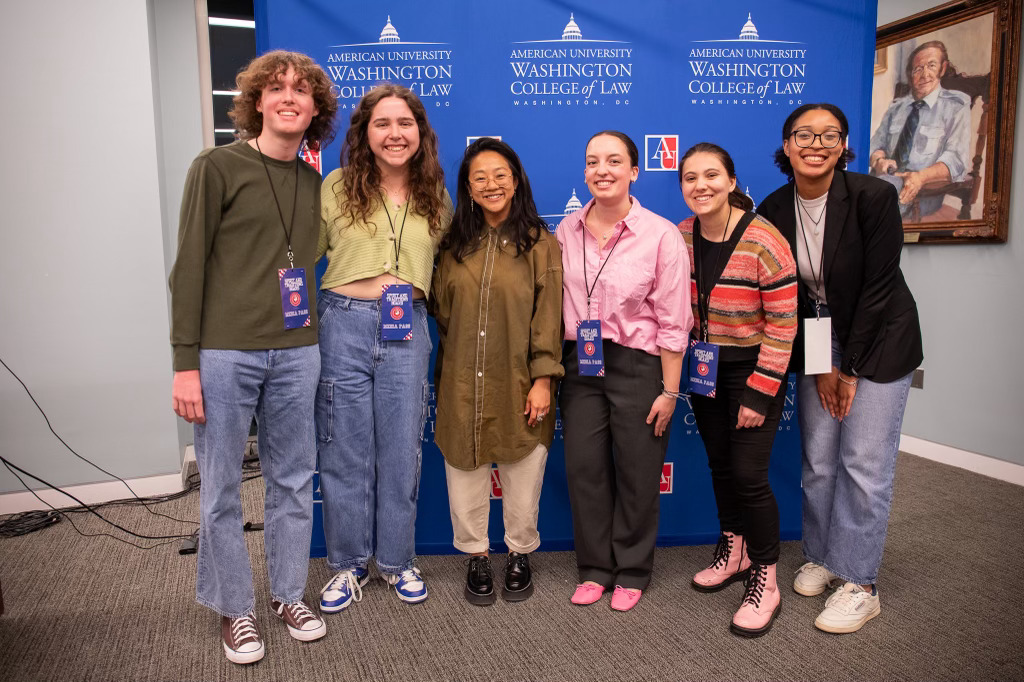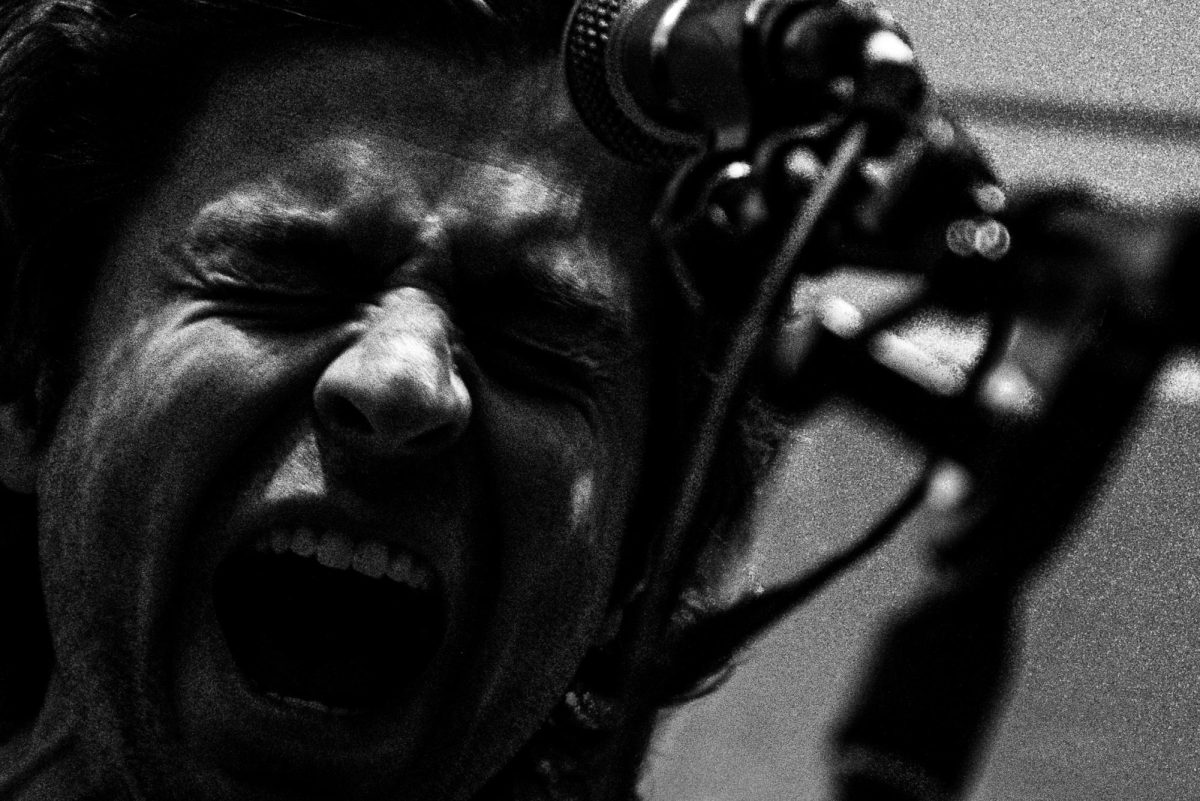WVAQ&A: Other Lives
March 13, 2012
In our latest WVAQ&A, Spencer Swan talked to Jesse Tabish of Other Lives, as his band gears up for an opening stint for Radiohead.
WVAU: How did you guys come up with such a distinctive sound?
Jesse Tabish: It’s been in the process a long time, you know. We’ve been playing music together for ten years now and the idea of incorporating classical instrumentation into the band was in there from the beginning. But it hasn’t really been until this recent record, Tamer Animals, that we’ve been able to get a little closer to our ideals. Since we were recording by ourselves we were able to be very idealistic about the recording, which then made in turn the live show kind of challenge. But [the album] made [the show] what it is cause we had to follow the record, or at least we really wanted to. So I think that’s where a lot of the changing of instruments and all that [comes from]. It’s not for flash, it’s more for necessity for the record and for the music.
WVAU: So you all started with the essential rock elements and you all moved into the classical instrumentation based on the record.
JT: Well, kind of. We started out the whole idea ten years ago with piano, cello, and drums. So we definitely had that kind of sound base from the get go. We were never a traditional rock band because I played piano, Jenny played cello, and there was electric guitar, bass, and drums. Some of our first recordings were kind of based around what us five or six were actually playing. So the recording was limited to what everybody could play. With Tamer Animals, I think there are a couple stints where I didn’t even record anything physically on the song except for my vocal just because nobody plays the bassoon or anything like that. But yeah, after Tamer Animals people had to pick up some new instruments.
WVAU: Was there an overarching theme you were thinking of when making the record?
JT: Well it’s a combination of two things, really. One being that it was the culmination of us living in Oklahoma for ten years, and in some ways it is about the landscape of Oklahoma. It’s kind of seeped into our brains after living there for such a long time. We even discussed writing music to the landscapes and even picturing the sound of that. But also, that was kind of at the heart of it, but there’s also the relationship between people and their land, and that transcends outside of Oklahoma. So those are the two themes. One was more picturesque for us to dream about what kind of music we wanted to write and one was more of a lyrical theme, but the two made sense on a lot of levels to me.
WVAU: So your influences would then be classical music and the place that’s around you?
JT: In some ways, it’s kind of like trying to write a soundtrack to your home, that environment that you’ve been seeing everyday for such a long time…I think it kind of comes from the idea that we’d always talk about [about] how great it would be to write music for a film. So it’s basically that same kind of thing. Picture something in your mind and write music to it.
WVAU: So you guys are opening for Radiohead coming up. Are you excited? How did that precipitate?
JT: I think we’re all extremely excited and a little nervous. You know, I wish it was tonight. It probably can’t come soon enough, but I think that’s natural with any big event coming up. We need to remind ourselves everyday to take it day by day because basically it’s gonna be the same show that we’ve been doing. So to enjoy every step of the way is a very important thing for us. But I can’t say enough how lucky we feel and what a great opportunity it is to open up for a band that has influenced us so greatly, and to have the opportunity to play in front of that many people. It’s gonna be great. We’re gonna turn some of that anxiety into a very positive thing.
WVAU: That makes sense. And do you guys have a goal or a destination in mind past where you’re going now, opening for Radiohead and that kind of thing? Is there a mission for the band coming up?
JT: The mission is a real simple one: to play great shows, to be really productive and healthy on the road, but also one other thing is that we’re gonna hope to record an EP. We’re gonna have about a month and a half off after all this, and I’d love to work on an EP release it this year. That would be great, but it looks like the rest of 2012 is going to be touring and getting ready for the next record.
WVAU: What really is it like to tour with all of those people and instruments and cellos and violins and timpanis?
JT: It’s a funny thing that happens. When we first started really heavily touring about nine months ago, it seemed like a really strange thing. [We thought] How are we gonna do this? This is crazy. After a couple months, you get in the swing of things and it strangely becomes normal. It’s a normal existence. The beauty of it is how simple it is. It’s all about your basic needs: sleep, food, play the show, load up, and go to bed. There’s something really freeing about that simplicity. People always ask me questions about “oh, what crazy tour stories do you have?” We don’t have any [laughs]. It’s so normal, and I mean that in the best way. Not to take away any of the magic of it, because we’re lucky to do it.
WVAU: Are you being happy with the way that the music industry is working with your band and with recording and touring with you, or would you change things?
JT: That’s really interesting. I really have no complaints. I really don’t look too far into that side of things either. I’m kind of out of sight, out of mind when it comes to that stuff. I am for all the Spotify and free music. I love that. I think it should be free, and I think it’s helped us immensely to get our record out there and have people stream it for free. It’s amazing. As far as the people we work with, I couldn’t be any happier. Really I think they’re the best in business for me. They’ve realized that you have to give time and development to artists for anything good to come out. And they know that they aren’t gonna squeeze any hits out of us [laughs]. There’s not much to go around in that department. As far as the business that we work with, we’re very happy.
WVAU: And where do you come down on free streaming versus free all together? You mentioned how free streaming and Spotify have been really good tools for your band. Should it be free for people to give to their friends or should it be that you can stream it all you want and then you should buy it? As a person who makes good music and as an independent band, what are your thoughts on that?
JT: Right, well I think things have changed. I think a lot of artists would have a different answer fifteen years ago and say, “well, that’s how our bands make money.” The truth is, that’s not how we make money now. And so, I can only speak for myself, but, I’m totally okay with our music being free to people and them having our record for free. I don’t care. It’s nice if they come out to a show and buy a vinyl or something that they can hold in their hands. That’s cool. That helps us out, but for all I care, steal the record and print off a hundred copies to your friends. I just want the music out there no matter how it gets out there. It’s thin air, you know. It should be free.
WVAU: It seems to me that the music industry is dying a little bit with all the hit-machine radio out there. You guys are part of the counter movement.
JT: I’m happy to be there. A lot of the bands we know are part of that same thing: self-producing, self-recording, and we don’t need to pay a producer sixty-thousand dollars to come in. The artists in these bands know how to do it. Why should we pay anybody when we know how to do make the sound and make the record?
Check out Staff Writer Alice Quinlan’s profile of Other Lives here.














